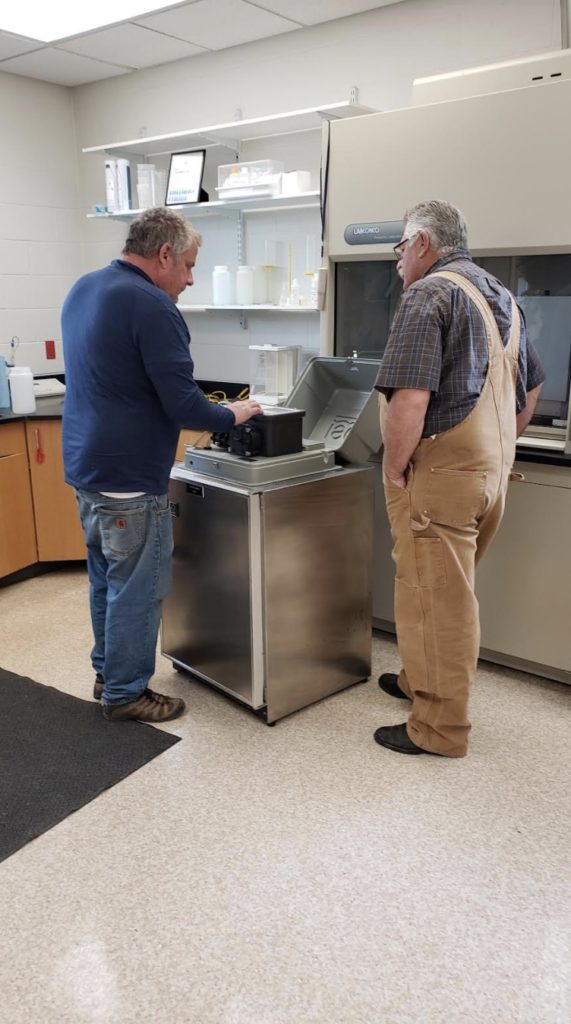By Bella Butler EBS STAFF
BIG SKY – On May 8, the Big Sky Relief subcommittee of the Big Sky Resort Area District board approved a grant of nearly $80,000 for the Gallatin City-County Health Department to fund COVID-19 wastewater surveillance.
Initially, the health department submitted an application to receive resort tax funds from the tax collected for the Fiscal Year 2021 allocation for which the allocation period will begin in June 2020. Because the health department’s ask was intended for a COVID-19-related project, the BSRAD board chose to reposition the request to come through Big Sky Relief, a group created in March in order to support community issues spurred by COVID-19.
When Big Sky Relief was established, the BSRAD board passed a resolution that granted authority to a subcommittee, comprised of board members Sarah Blechta and Steve Johnson, to award dollars from the fund to local nonprofit or government organizations. This resolution allowed Blechta and Johnson to approve the $79,696 granted to the health department for the purpose of wastewater surveillance.
The resort tax board has been active in pushing the initiative to expand testing capabilities in the community of Big Sky, and the health department’s request for funds was in response to board chair Kevin Germain and BSRAD Executive Director Daniel Bierschwale inquiries about how the board could support this effort in Big Sky.
“It appears that testing and surveillance are going to be the key to safely reopening the economy,” said Bierschwale, emphasizing the importance of making data-driven decisions in a time when public health is at stake. In order to create a more comfortable and safer environment for both visitors and residents, he added, Big Sky needs to improve testing and surveillance capabilities. Having more locally sourced data will also provide GCCHD with information to better inform countywide decisions.
Matt Kelley, GCCHD health officer, said that while individual testing often misses asymptomatic people, those unwilling to be tested, or those inhibited by a lack of testing materials and access, the wastewater surveillance isn’t limited by the same factors; it’s inherently more inclusive. “Everyone uses the restroom,” Kelley said.
More than a dozen research groups around the world have started testing wastewater as a way to approximate the number of COVID-19 cases in a community, according to an article published in Nature in early April. During a 17-day period in March and April, Montana State University associate professor Blake Wiedenheft’s research team collected wastewater samples from Bozeman’s Water Reclamation Facility to test for the virus, which is shed in feces. Their results revealed trends that lined up with those being illuminated by individual testing data.
“It’s unlikely that we are going to have enough resources to be able to test enough people to be able to get a really high penetration onto the population and know what the prevalence is,” Wiedenheft said. “I think it’s a really important complement to individual testing to do community testing, and the way to do community testing that is a cost-effective way to measure the amount of SARS-CoV-2 [the virus that causes COVID-19] in a community is to monitor the wastewater.”
The process performed by Wiedenheft’s team requires an automated sample collector that creates a 24-hour composite by drawing samples every hour from incoming untreated wastewater. The composite is then brought to a lab where the organics and other extraneous materials are sorted out before the sample is tested the same way that swabs from individual tests are processed.
At this time, researchers are able to conclude viral presence, abundance and trends from wastewater. Wiedenheft said that next steps will be translating those statistics into estimations of individuals infected, an advancement he believes is not far off.
Following Gov. Steve Bullock’s stay-at-home directive in March, Wiedenheft said that, like individual testing data, the Bozeman wastewater surveillance revealed that viral abundance had plummeted to a point undetectable by the test. He clarified that just because the virus is not detectable doesn’t mean that it is not present in the community.
While the viral load is still minimal, local experts will look to the surveillance as one indication of a viral resurgence. In the health department’s application for resort tax funding, it was indicated that the bulk of the grant—$29,886—would be used to fund more extensive testing in July, followed by $9,962 worth of testing per month through the end of the year.
The health department, which did not have additional capacity in its budget to fund the surveillance, according to Kelley, is currently facilitating connections between communities in the county, like Big Sky, who are interested in adopting the surveillance practice with funding and testing labs. Big Sky’s wastewater surveillance will go through Dr. Seth Walk’s lab at MSU. Big Sky County Water and Sewer District employees will also be volunteering hours to assist with operational procedures on-site at Big Sky’s wastewater treatment facilities.

“In the absence of a municipality, the resort tax district has the fiduciary responsibility of ensuring that we are spending our money as wisely and effectively as possible,” Bierschwale said. He added that this project, as well as other Big Sky Relief efforts, are working toward turning on resort tax collections in a safe and healthy way that meet all the needs of the Big Sky community.
On May 19, Gallatin County commissioners voted to use county dollars to fund wastewater surveillance in West Yellowstone. Bozeman wastewater testing will continue, and a funding partnership with the City of Bozeman is in the works. Wiedenheft made reference to other countries that have recently moved to allocate federal dollars to wastewater surveillance to provide for a more holistic picture of viral presence.
While the United States federal government has yet to do so, Wiedenheft said that many states are taking progressive approaches to monitoring for the virus, and he believes Montana could be among them.













